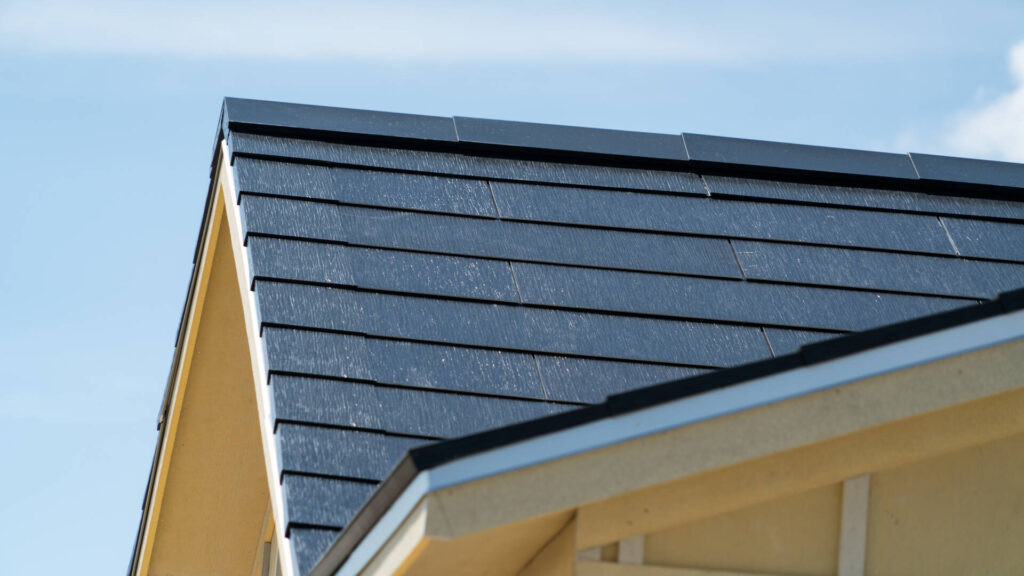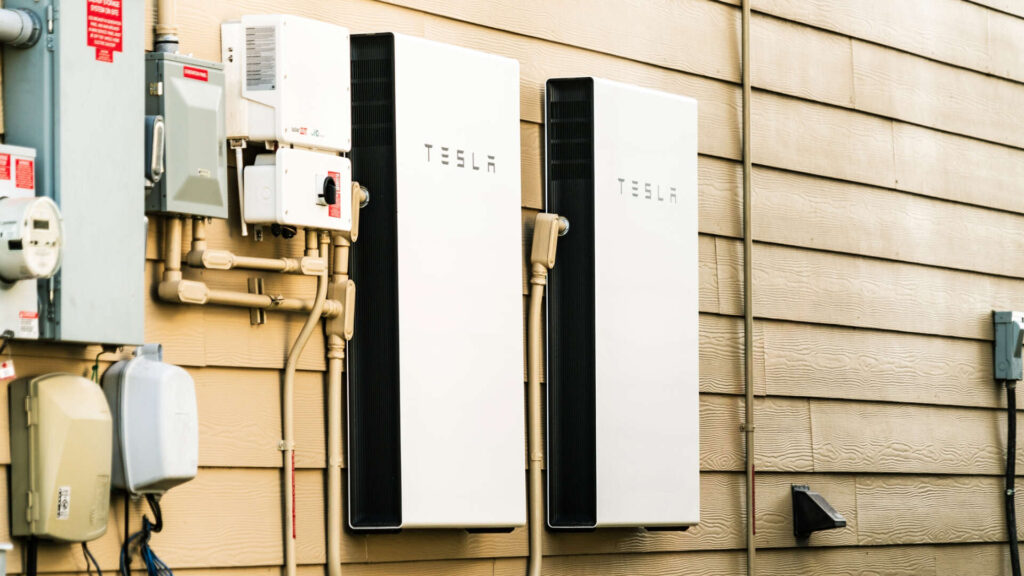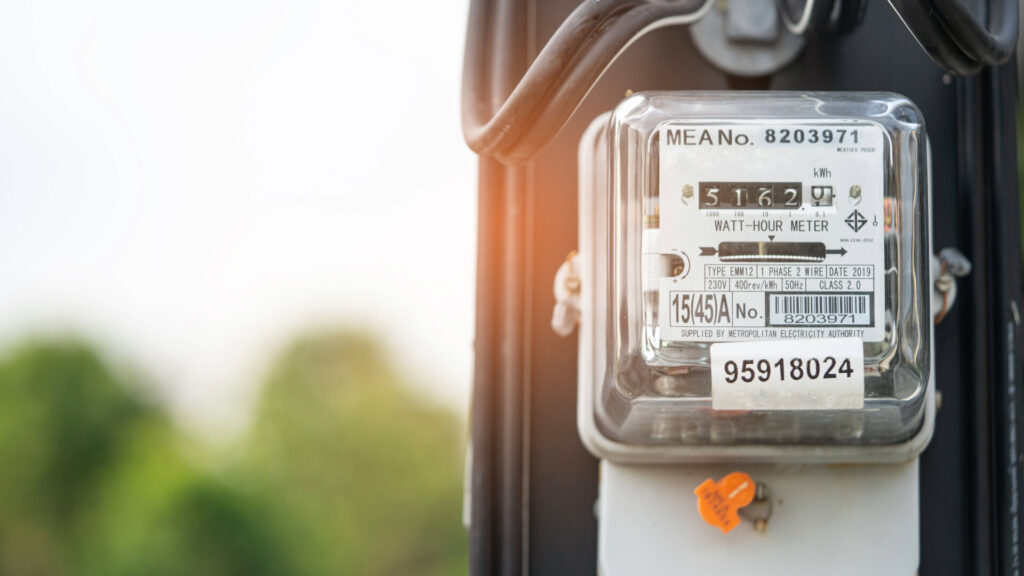Yes, Tesla Solar Roof is worth it in New Jersey if you can afford the initial cost. This post explores its benefits, and state incentives while noting key challenges like upfront expenses and weather reliance.

Table of contents
- What is a Tesla Solar Roof?
- Solar Energy in New Jersey
- The Importance of Tesla Solar Roof in New Jersey’s Solar Energy Market
- Comparison of Tesla Solar Roof and Traditional Energy Costs
- Potential Drawbacks or Limitations of Tesla Solar Roof
- Final Verdict
- Conclusion
What is a Tesla Solar Roof?
The Tesla solar roof is an integrated solar energy and storage system featuring a Powerwall, a compact home battery for 24/7 energy security. It stores energy generated by the Solar Roof, ensuring power availability anytime, even during outages. The roof includes energy-producing glass solar tiles and durable steel tiles for long-lasting protection and all-weather resistance. With a 25-year warranty, it guarantees decades of clean energy production.
The system adapts to roofs with complex shapes and varying sunlight, combining solar tiles, steel tiles, and other components for a durable and efficient roof. Additionally, the Tesla Solar Inverter ensures safety and reliability, improving over time with software updates. The system can be monitored and controlled via the Tesla app, allowing real-time energy tracking and remote system management. The financial benefits of solar panel installation, including long-term savings and available incentives, make it an attractive option for homeowners considering solar energy in New Jersey.
Solar Energy in New Jersey
Tesla solar energy is very important for New Jersey’s climate. The state gets a lot of sunlight, which is perfect for solar power. Tesla’s solar panels and roofs can turn this sunlight into clean energy for homes. This is good for the environment and can help reduce the use of fossil fuels, which are harmful to the planet.
New Jersey is also very supportive of solar energy. The state has created several incentives and policies to encourage people to use solar power. For example, homeowners who install solar panels can get financial benefits like tax credits and rebates. The federal solar tax credit can significantly lower the upfront costs of solar panel installation. This means they can save money on their solar energy systems. Homeowners can also earn Solar Renewable Energy Certificates (SRECs) by generating solar electricity, which can then be sold in the SREC market to utility companies that need them to comply with renewable energy mandates.
Benefits of Solar Energy Systems in New Jersey
Reduce Energy Bills with Solar Panels
Installing solar panels in New Jersey can significantly reduce your energy bills. With the state’s high electricity prices, solar energy can help you save money on your monthly bills. According to the US Energy Information Administration, the average electricity price in New Jersey is around 17 cents per kilowatt-hour (kWh). By installing a solar panel system, you can generate your own clean energy and reduce your reliance on the grid. This can lead to substantial savings on your energy bills, especially during peak sun hours.
Increase Property Value with a Solar Panel System
Installing a solar panel system can also increase your property value in New Jersey. A study by the National Renewable Energy Laboratory found that homes with solar panels sell for 17% more than similar homes without solar panels. This is because solar panels are seen as a desirable feature by homebuyers, and they can increase the overall value of your property. Additionally, solar panels can also enhance the aesthetic appeal of your home, making it more attractive to potential buyers.
Contribute to a Sustainable Future
By installing a solar panel system in New Jersey, you can contribute to a sustainable future and reduce your carbon footprint. Solar energy is a clean and renewable source of energy that produces no emissions or pollution. By generating your own clean energy, you can reduce your reliance on fossil fuels and help mitigate climate change. Additionally, solar energy can also help reduce air pollution and improve public health.
The Importance of Tesla Solar Roof in New Jersey’s Solar Energy Market
In the world of renewable energy, the Tesla Solar Roof is very important in New Jersey’s solar market. This state is forward-thinking about environmental issues and is really interested in sustainable energy. This makes Tesla’s new and unique solar roof especially suitable for New Jersey.
Alignment with State Solar Incentives and Policies
New Jersey has been a frontrunner in encouraging solar adoption through incentives and policies. The Tesla Solar Roof aligns perfectly with these initiatives. Homeowners in New Jersey can benefit from various state-specific rebates and tax credits, making the investment in Tesla’s solar technology both economically and environmentally sound.
Homeowners in New Jersey can save more money with the federal solar credit. This program, once called the Solar Investment Tax Credit (ITC), got a new name in 2022: the Residential Clean Energy Credit. It lets homeowners take off up to 30% of their solar installation costs from their federal taxes.
Energy Independence and Security

With its integrated energy storage system called the Powerwall, the Tesla Solar Roof offers New Jersey residents a degree of energy independence and security that is hard to match. In a state that has experienced its fair share of power outages due to storms and other natural events, the ability to store and use solar energy on-demand is invaluable.
Economic Impacts and Job Creation
The increasing adoption of Tesla Solar Roofs can also stimulate local economies. Solar companies play a crucial role in creating job opportunities and contributing to the state’s economic growth. It opens up new job opportunities in installation, maintenance, and support services, contributing to the state’s economic growth.
Is Your Home Solar Ready?
Assessing Your Home’s Solar Potential
Before installing a solar panel system, it’s essential to assess your home’s solar potential. This involves evaluating the amount of sunlight your home receives, the size and orientation of your roof, and the local building codes and regulations. A professional solar installer can conduct a site assessment to determine the feasibility of a solar panel system for your home. They will evaluate the following factors:
- Roof size and orientation: A south-facing roof with minimal shading is ideal for solar panels.
- Shading: Trees, buildings, and other obstructions can affect the amount of sunlight your roof receives.
- Local building codes and regulations: Your solar installer will ensure that your solar panel system complies with local building codes and regulations.
- Energy usage: Your solar installer will evaluate your energy usage patterns to determine the size of the solar panel system you need.
By assessing your home’s solar potential, you can determine whether a solar panel system is right for you and ensure a successful installation.
Comparison of Tesla Solar Roof and Traditional Solar Panels Energy Costs
When comparing the Tesla Solar Roof with traditional energy sources, like electricity from the power grid, there are a few key points to consider:
Initial Costs
The Tesla Solar Roof usually has a higher solar panels cost upfront compared to setting up traditional energy sources. Installing a solar roof involves buying the solar tiles and paying for the installation. In contrast, connecting to the power grid usually comes at a lower initial cost.
Long-Term Savings
Over time, the Tesla Solar Roof can save you money. Homeowners can also earn money by selling excess solar energy back to the power grid. It turns sunlight into electricity for your home, which means you can use less energy from the power grid. This reduction in grid energy use can lower your electricity bills significantly, especially over several years.
Energy Prices

The cost of traditional energy, like electricity from the power grid, can go up over time. This is due to various factors like fuel costs and maintaining the energy infrastructure. With a Tesla Solar Roof, once you’ve paid for the installation, the cost to generate electricity is essentially free, as it comes from the sun.
Maintenance Costs
The Tesla Solar Roof is designed to last a long time and requires little maintenance. Traditional energy sources might have ongoing costs for maintenance and repairs.
Environmental Impact
The Tesla Solar Roof has a smaller environmental impact compared to traditional energy. It uses the sun, a renewable resource, to generate electricity. Traditional energy often relies on fossil fuels, which can harm the environment.
Potential Drawbacks or Limitations of Tesla Solar Roof
While Tesla solar products offer many benefits, there are also some potential drawbacks or limitations to consider:
- High Initial Cost: One of the biggest challenges of Tesla solar systems is their upfront cost. Installing Tesla solar panels or a solar roof can be more expensive than other solar options or traditional energy sources. It is crucial to choose a reliable solar company for installation projects, as they can provide better customer support, certifications, reviews, and financing options.
- Installation Requirements: Not every roof is suitable for a Tesla solar installation. Some roofs might be too small, have the wrong shape, or be in shaded areas
- Long-Term Commitment: Switching to solar energy with Tesla is a long-term commitment. Once you install the system, it’s expected to be used for many years. If you move out of your house, you might not get the full benefit of your investment unless the new homeowners are also interested in solar energy.
- Aesthetics: While many people find Tesla solar roofs attractive, some might not like how they look. The appearance of solar tiles is different from traditional roofing materials, which might not suit everyone’s taste or the style of their home.
Final Verdict
Tesla solar can be a good choice in New Jersey for those who can afford the initial investment and whose homes are suitable for installation. Performance-based incentives in New Jersey pay homeowners based on the actual energy their solar system produces, adding to the financial benefits. The state’s sunny climate and supportive solar incentives make Tesla solar an attractive option for long-term savings and environmental benefits. However, it’s important to consider the potential challenges, like the upfront cost and dependence on weather, before deciding. Each homeowner’s situation is different, so it’s wise to weigh these pros and cons carefully.
For a deeper understanding of the Tesla solar roof, check out this YouTube video. It offers an additional, detailed explanation of how Tesla’s solar energy system operates
Video by: Marques Brownlee
Conclusion
In summary, if you’re thinking about getting Tesla solar energy in New Jersey, it’s very important to do your own research. Every house is different, and factors like where your house is, the size and shape of your roof, and how much sun it gets can all affect how well Tesla solar panels will work for you. You should also look into the financial help available in New Jersey, like tax credits and rebates, which can make solar panels more affordable. Compare the cost of installing Tesla solar with your current energy bills to see if you’ll save money in the long run.
By conducting thorough research and considering your specific circumstances, you can make a decision that is both financially and environmentally sound for your household.
Fact checked by Adrian Catalico – 1/25/2024